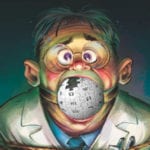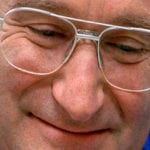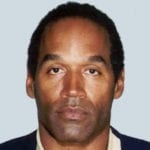 History
History  History
History  Health
Health 10 Everyday Activities That Secretly Alter Consciousness
 History
History Top 10 Historical Disasters Caused by Someone Calling in Sick
 Animals
Animals 10 New Shark Secrets That Recently Dropped
 Movies and TV
Movies and TV 10 Forgotten Realities of Early Live Television Broadcasts
 Technology
Technology 10 Stopgap Technologies That Became Industry Standards
 Weird Stuff
Weird Stuff 10 Wild Facts About Taxidermy That You Probably Didn’t Know
 Travel
Travel 10 Beautiful Travel Destinations (That Will Kill You)
 Miscellaneous
Miscellaneous 10 Modern Marriage Rituals Born from Corporate Branding
 Weird Stuff
Weird Stuff Ten Bizarre Visions of 2026 from Fiction
 History
History 10 “Modern” Problems with Surprising Historical Analogs
 Health
Health 10 Everyday Activities That Secretly Alter Consciousness
 History
History Top 10 Historical Disasters Caused by Someone Calling in Sick
Who's Behind Listverse?

Jamie Frater
Head Editor
Jamie founded Listverse due to an insatiable desire to share fascinating, obscure, and bizarre facts. He has been a guest speaker on numerous national radio and television stations and is a five time published author.
More About Us Animals
Animals 10 New Shark Secrets That Recently Dropped
 Movies and TV
Movies and TV 10 Forgotten Realities of Early Live Television Broadcasts
 Technology
Technology 10 Stopgap Technologies That Became Industry Standards
 Weird Stuff
Weird Stuff 10 Wild Facts About Taxidermy That You Probably Didn’t Know
 Travel
Travel 10 Beautiful Travel Destinations (That Will Kill You)
 Miscellaneous
Miscellaneous 10 Modern Marriage Rituals Born from Corporate Branding
 Weird Stuff
Weird Stuff Ten Bizarre Visions of 2026 from Fiction
Top 10 Comedians Turned Serious
Comedians are a rare breed of people. They are quick on their feet and can provoke laughter while giving insight and truth or just acting plain dumb. It’s the rare comedian that pushes themselves and decides to try something new. Instead of laughter, why not evoke sadness? Or anger? Or transform themselves into something we never thought they could be. Below are the top 10 comedians who’ve gone beyond comedy and given us a new side of themselves. (A small note here: I hope this list doesn’t give the impression I hate comedies. Far from it. I’m just not a fan of repetition or second-best.)
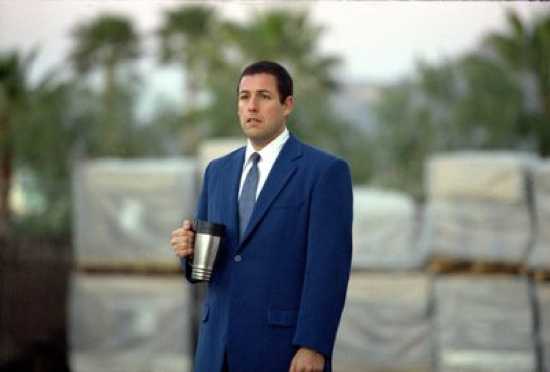
Punch-Drunk Love is a romantic comedy starring Adam Sandler. Hold on, hold on. It’s directed by Paul Thomas Anderson (Magnolia, There Will be Blood) and Sandler portrays his character as a realistic version of his Happy Gilmore self. Instead of the whole world being his playground and accepting of his reckless and selfless behavior he’s now a mentally-unstable man who’s desperately alone and afraid. We’ve seen Sandler act mean before this but never in such a spiteful and hurtful way. It’s this side to him that makes the later part of the film work, where he meets a woman who balances him out and he finds something to care about and fight for. Sandler gives a performance that surprised everybody and makes his current film roles even more of a disappointment.
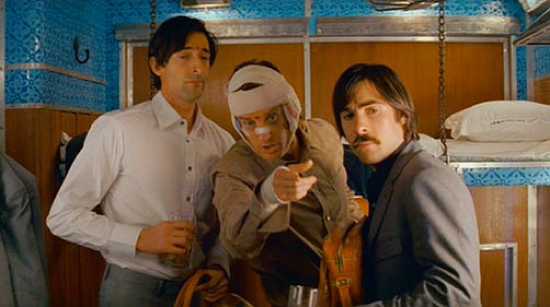
While not a strict drama, it’s Wilson’s performance that has a lot of depth too it. It’s also not his first ‘serious’ role, as he’s been in Behind Enemy Lines and The Haunting, but those were before he became typecast as the reliable funny man. Wilson plays one of three brothers (the other two being Adrian Brody and Jason Schwartzman) on a train traveling across India. Along the way the estranged brothers grow closer and begin to bond, opening up old wounds and burying various hatchets. The most interesting thing about Francis, Wilson’s character, is (spoiler alert) that his character is wearing bandages because of a suicide attempt and this film came out after Wilson himself had attempted suicide. It adds a certain sadness to the character, who wants to atone for opportunities and has a new appreciation of life. Wilson plays it much more quiet than usual and gives the character meaning.
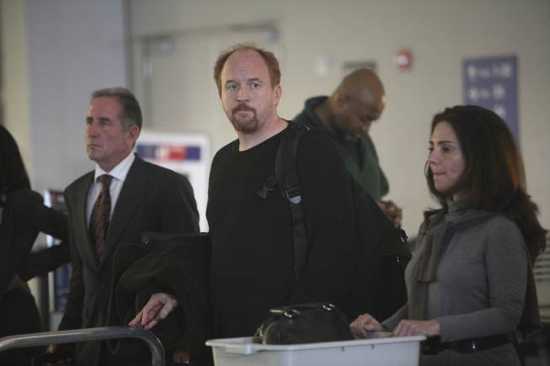
Alright, this may be considered cheating, because Louis C.K.’s Louie is a reflection of Louis’ real life and is intended as a comedy. The thing is though, anyone who’s watched the show knows that it’s more than that. It does have many funny moments (Louis’ deconstruction of a heckler and the numerous standup segments that open and close the show) but there are just as many serious moments (Louis’ conversation with a friend who’s made up his mind about killing himself, and protecting his daughters from two Halloween thugs) so it’s a definite genre mix. We’ve seen in Louis’ standup he’s a man of deep thought and honesty but seeing him portray a character, even one based off himself, who’s such an everyday man with the same hopes and despairs and wants and needs of the average person is refreshing because we don’t get the lighthearted fictional worlds of happiness and sunshine we see in normal shows.
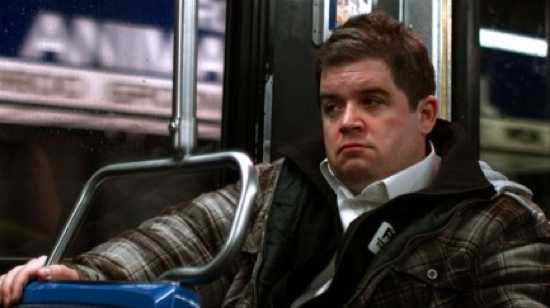
Patton Oswalt is an overweight nerd. That’s not an insult, because I’m pretty sure that’s how Oswalt would describe himself. He has numerous routines on Star Wars and video games and he’s always happy and jovial. That’s what makes Big Fan so shocking. In it, Oswalt is a lonely, massive sports nut who spots his favorite player and ends up following him into a night club. When he finally approaches him, the sports star is violent and angry, and thinking Oswalt is stalking him, beats him half to death. What follows is Oswalt’s mental health slowly slipping, as he refuses to sue the player and takes the blame for the incident. His few friends ostracize him as he begins to have outbursts and eventually heads to a rival teams sports-bar where he confronts another huge sports nut and this is where we see him fully break down. I won’t say what happens but the character is given a lot of depth and we’re able to easily sympathize with somebody who we shouldn’t much care for. It’s a remarkable performance by a comedian who spends a lot of time providing voices for silly cartoons.
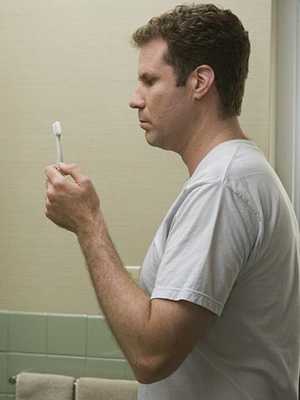
Will Ferrel, for most of his career previous and post this film, has played a petulant man-child. It’s this odd role of his that stands out after a series of comedies where he largely played the same character. In this film by Marc Forster, Ferrel plays an IRS agent whose life begins to be narrated by an author played by Emma Thompson. In the midst of this existential crisis, Ferrel falls for a woman who he’s audited, Maggie Gyllenhaal and finding that Thompson’s characters are always killed in the end, decides to live life to the fullest. There’s a gravity to Ferrel’s performance that we don’t see often, in comedians or elsewhere. He’s a man of routine that seems hollow, but once given a reason to live, is shown to be full of heart and hope.
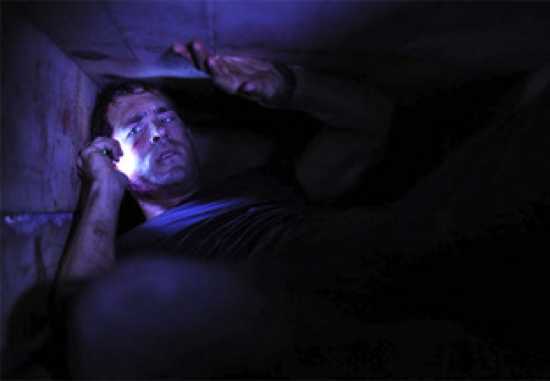
Again, this could be argued as cheating, due to Reynolds not strictly being a comedian, but largely his roles are of a funny, fast-talking wise guy. Buried, an experimental film by Rodrigo Cortés, places Reynolds in a coffin for an hour and a half. That is the entire movie. One actor, one location. It would take a great actor to really pull us in and keep us engrossed, and when thinking of that actor, Van Wilder does not come to mind. Yet Reynolds pulls it off. He’s able to emote easily though bodily language and his eyes, and we hear the desperation and strain in his voice as the movie continues and we find out more about why he was buried alive. It’s a very different movie, not just for him but as a whole, with its focus on camera shots and atmosphere. Reynolds is not a hero, a badass, a funny man, or anything like we’ve seen of him before. He’s a man who’s in a very dangerous situation, scared, confused, and alone, and we’re able to feel this.
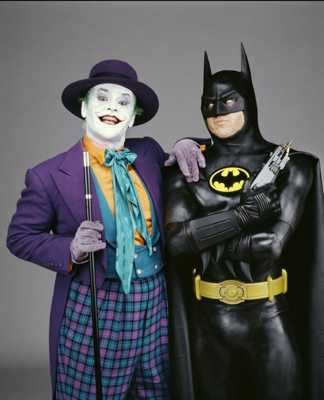
Michael Keaton, before Batman, did have some dramatic roles. None of them were a huge success, though, and it was the comedies he starred in that really put him on the map. Maybe that was why, when he was announced as Batman, that fans were very upset. They didn’t think Beetlejuice or Mr. Mom could ever be the dark, brooding protector of Gotham. Yet, like Heath Ledger many years later, their mouths were shut. Keaton and director Tim Burton brought something new to the Dark Knight. Instead of the camp and lighthearted silliness of the Adam West era, this new Batman was full of dark imagery and adult themes, and drove home the villainy of his foes and the heroism of the Batman. Keaton, as Bruce Wayne, played the role similar to Christian Bale – he was a womanizer and a partier, but unlike Bale, who’s Wayne was over the top and loud, Keaton’s was more easily seen as a projection and a show when looked upon closely. As Batman, he had the right sense of confidence, anger, and vengeance needed to make a convincing hero full of confliction and mixed emotion.
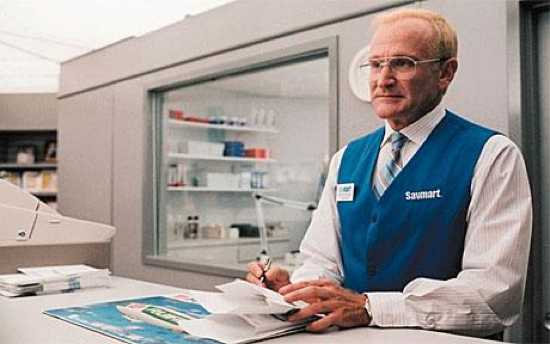
Robin Williams started out as a comedian who wasn’t afraid to speak his mind and say whatever the hell he wanted to say. This confidence added with his manic comedic ability landed him various parts in film and television, where he began to be used for the same role over and over. Unlike other actors, he took offense to this. He was an actor and he would prove it. Williams began taking heavier roles in dramas, going from Mork and Mindy to Deat Poets Society, from Popeye to Awakenings. More and more, this type of work began to balance his equally large comedic background. That’s why I found it hard to choose one film to showcase his dramatic talent. One Hour Photo, directed by Mark Romanek, is the role that Williams fully loses himself in. It’s a complete transformation and that’s why I chose it. In it, he plays a depressed, lonely, mentally-ill photo technician who, over the years, develops film rolls for a growing family. He sees the young couple grow from naive young adults to full fledged parents, all in a large span of pictures. Growing attached to them, he begins to wish to be a part of their family and becomes obsessed with them. Williams completely embodies this character. We don’t know if he’ll implode or explode, but we know he’s on the edge. We still feel feel for him, though. He’s an old man who we can tell has been hurt and all he wants is acceptance. It’s a mesmerizing role by an actor who seems to have infinite range.
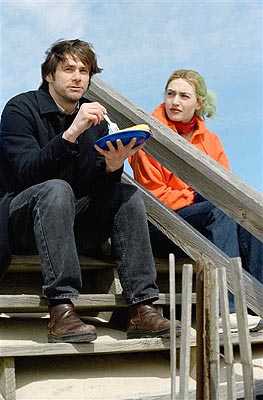
Jim Carrey, much like Will Ferrel and Adam Sandler, is popular for a certain type of role. A goofy, over-the-top, scenery chewing madman. It was completely surprising when The Truman Show hit, and we saw a whole new side of him. There was potential. Man on the Moon came out and we saw even more. Eventually The Majestic was released, and while not a perfect movie, showed even more of the Jim Carrey hiding behind a mask of tomfoolery. It wasn’t until the Michael Gondry-directed Eternal Sunshine of the Spotless Mind hit theaters that we saw Carrey’s full potential. Playing a man who comes out of a disastrous relationship and goes through an operation to have the girl erased from his memory only to find, at the last moment, that he wishes to keep these memories, Carrey is unlike we’ve ever seen him. His character is a shell of his former self, a former self who was never that happy in the first place. He’s socially awkward, alone, weird, and prone to puppy love. He’s needy but he’s been hurt, leaving him a constant state of relationship paranoia. We feel everything Carrey does as he travels through his memories and we see snippets of his best moments and his worst. We root for him, because in some way or another, we can all relate. Even in the end, and spoiler alerts here, where Clementine (Kate Winslet) and him realize their relationship will never work, his shrug and words of “OK…” are heartbreaking, because we know they’ll try again and fail, but even with that knowledge, we hope it’ll work, because they only have each other. Carrey shows all of this in his performance with a sense of innocence and humanity. It’s a very subtle role, a far cry from his early days as an attention seeking clown.
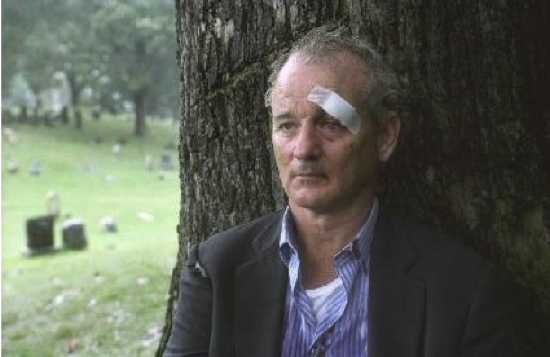
Was there really any other choice? Bill Murray, along with Robin Williams, are the two actors who comes to mind when you think of a comedian playing it serious. Murray has a long list of comedic vehicles, and his typecast, while growing more droll in recent years, has been that of a sarcastic, bitter, asshole. The most obvious choice for a serious role of his is Lost in Translation, but while Murray is excellent in it, there isn’t much range shown. Broken Flowers, I feel, shows more of what Murray is capable of. After getting a letter informing he has a son, Murray travels across the country to find former lovers to see who sent the letter. The character is a womanizer who’s found himself solitary, with few friends and a pessimistic outlook on everything. As he visits various past flames we see him realize that the common denominator is him. He’s not a good guy and he wrestles with this, and eventually decides that the idea of being a father might be exactly what he was looking for. At the end of the film, his search is fruitless and when he comes home, he has a conversation with a drifter who he thinks is his son, but comes on too strong and the young man flees. Murray chases after him but ends up in the middle of a literal crossroads, where he sees another teenager drive by listening to the music Murray listens to. A vivid emotion of acceptance and hopelessness crosses his face as his past has caught up to him and the bridges he’s burnt leave him nowhere. It’s a role that seems to reflect Murray’s own personal life, and it comes across as semi-biographical. There’s a ton of emotion in his performance and we see the gradual changes in his perspective and feeling. It’s a marvelous job by one of the funniest, most genuine, hard-working men in Hollywood.

